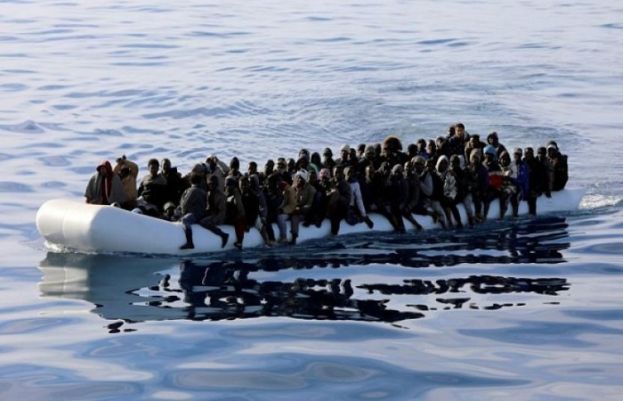At least 57 bodies, including those of Pakistanis, have been washed ashore after two migrant boats sank in the Mediterranean off different towns in western Libya, a coast guard officer and an aid worker said on Tuesday.
One survivor, Bassam Mahmoud from Egypt, said there were about 80 passengers on one of the boats that set off for Europe at around 2am on Tuesday. There was an argument as the boat was sinking but the man in charge refused to stop, he said.
“We kept fighting until someone caught up with us. The scene was horrific and some died (in the water) in front of me,” he added.
Eleven bodies, including that of a child, were recovered off Qarabulli in eastern Tripoli, said coast guard officer Fathi al-Zayani. The migrants were from Pakistan, Syria, Tunisia and Egypt, he said.
A Red Crescent aid worker in Sabratha in western Tripoli said they had recovered 46 bodies in the past six days from the beach and they were all “illegal migrants” from one boat.
Pictures were posted online by the Sabratha Red Crescent agency showing bodies in black bags being placed at the back of pick-up trucks by the aid workers wearing face-masks and gloves.
The aid worker said more bodies were expected to be washed up in coming days.
The International Organisation for Migration said this month 441 migrants and refugees drowned in early 2023 while attempting to cross the Mediterranean from North Africa to Europe, the most deaths in the past six years over a three-month period.
A decade after overthrowing Muammar Gaddafi in a Nato-backed uprising in 2011, Libya became the main departure point for mostly African migrants trying to cross to Europe.
But Tunisia has since taken over from Libya as the most popular departure point.
Italy has rescued 47 boats carrying around 1,600 migrants in the central Mediterranean sea in the last two days and brought them ashore to the island of Lampedusa.
On Monday, Italy offered Tunisia the prospect of money in exchange for economic and political reforms as EU foreign ministers discussed how to respond to growing instability in the African country.
Pakistanis among dozens dead as two migrant boats sink off Libya

